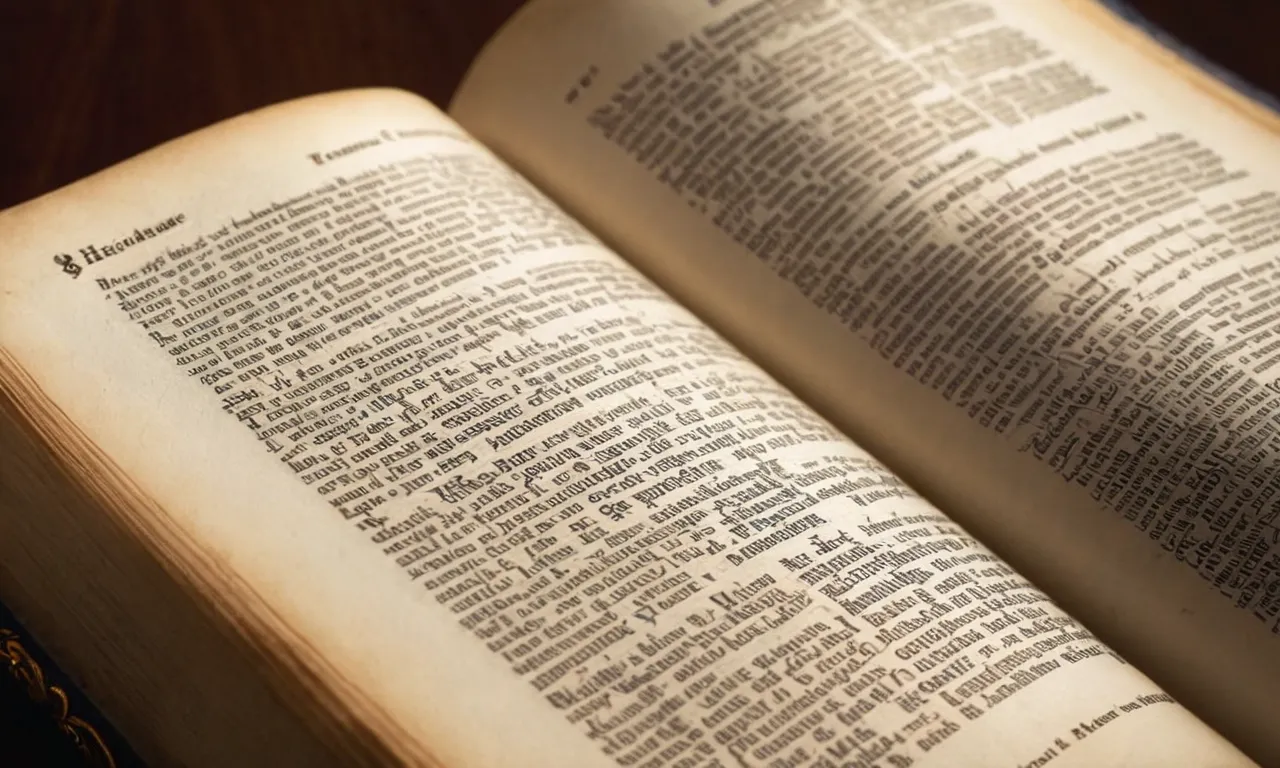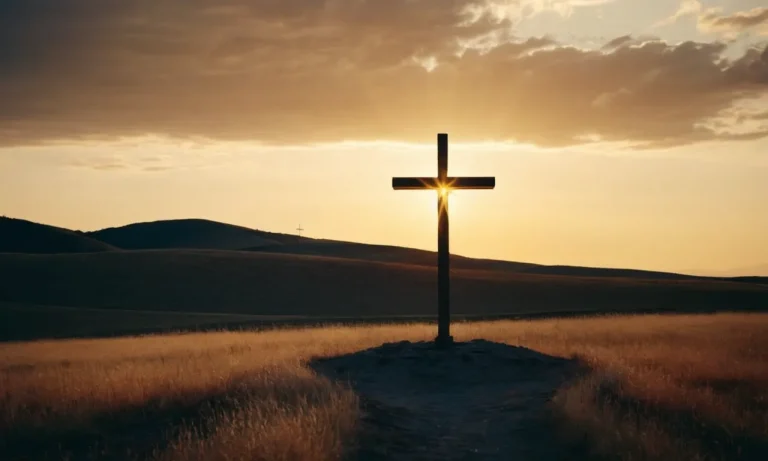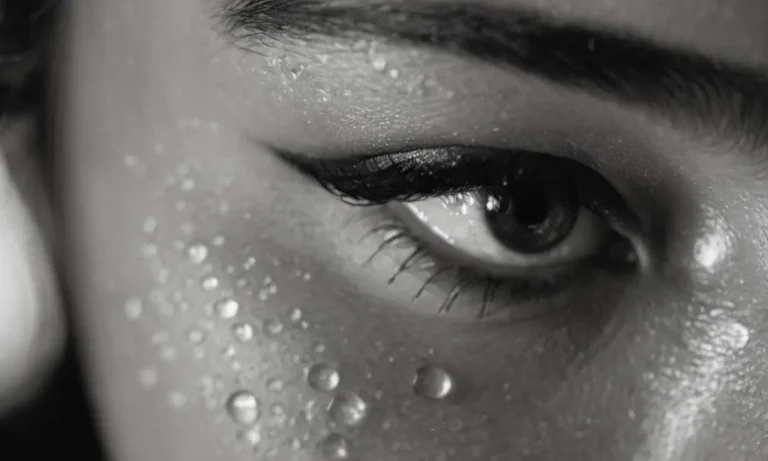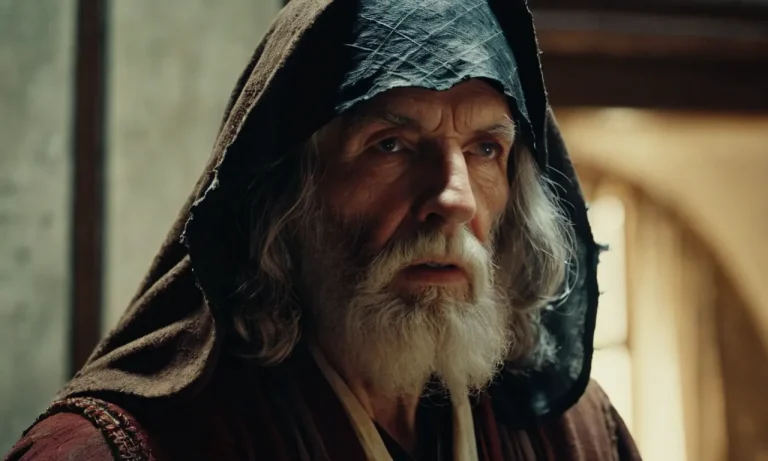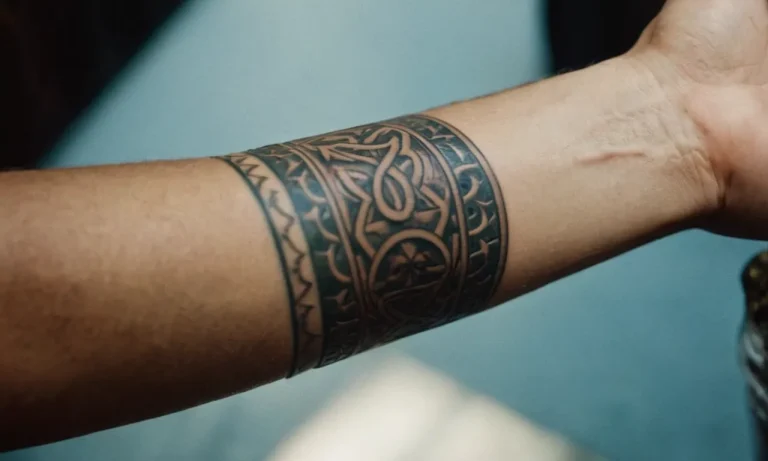What Does The Bible Say About Freemasonry?
Freemasonry has long been a controversial topic among Christians. Its secretive nature and use of religious imagery have led many to question whether the organization is compatible with following Jesus Christ.
If you’re short on time, here’s a quick answer to your question: The Bible does not directly mention Freemasonry, but some argue that its pagan-like rituals and requirement to swear oaths contradict scriptural teachings. Most churches discourage or prohibit Christians from being Freemasons.
In this comprehensive article, we will examine the history of Freemasonry, its links to occultism and paganism, the use of secret rituals and oath swearing, and various scriptural passages that may apply to the question of whether Christians should become Freemasons.
A Brief History of Freemasonry
Origins in Medieval Stonemason Guilds
Freemasonry has its roots in the medieval stonemason guilds of Europe. These guilds organized skilled craftsmen who worked on the great cathedrals and castles that sprang up during the Middle Ages. The masons developed secret methods of recognizing each other, using special symbols and handshakes.
They guarded their trade secrets closely to prevent outsiders from learning their techniques.
As the demand for grand buildings declined in the 17th and 18th centuries, lodges of operative masons began to accept men from other professions who were not actual stonemasons. These men were known as “speculative” or “accepted” masons.
Over time, Freemasonry shifted from being an organization of working stonemasons to a fraternal order focused on moral edification and spiritual enrichment.
Spread of Freemasonry in 18th Century
In the early 1700s, Freemasonry spread rapidly across Europe and the American colonies. Many influential men, including prominent political and religious leaders, were drawn to its moral teachings and secret rites.
Benjamin Franklin, George Washington, and other Founding Fathers were active Freemasons.
Some of the reasons for Freemasonry’s expansion include improved transportation networks, the growth of the English middle class, and a fascination with the mysteries of the East. During the Enlightenment era, people were increasingly interested in spiritual matters outside traditional religion.
There was also a political dimension to Freemasonry. Masonic lodges provided a place for men of different social classes and backgrounds to meet as equals. This helped spread democratic ideals. However, the secret nature of Freemasonry led to suspicion from outsiders.
Growth and Expansion Over the Centuries
By the late 1700s, Freemasonry had thousands of members across Europe and the Americas. Splinter groups and alternative forms of Masonry also arose. For example, some lodges admitted women, while others allowed non-Christians to join.
In the 19th and 20th centuries, Freemasonry continued to expand globally, following trade and colonial networks. According to some estimates, there are over 6 million Freemasons worldwide today, including around 2 million in the United States.
However, membership in mainstream Grand Lodges has declined since the 1960s. Some lodges have modernized their image to attract younger members. But controversies and conspiracy theories persist about Freemasonry’s secret rituals and alleged occult leanings.
While no longer a major political force, Freemasonry remains one of the world’s largest and most well-known fraternal organizations. Its ornate symbolism, moral teachings, and mystic aura continue to fascinate outsiders and members alike.
Freemasonry’s Use of Occultic and Pagan Symbolism
Egyptian, Greek and Mystical Influences
Freemasonry utilizes symbols and imagery from ancient Egyptian, Greek and mystical traditions to convey principles and teachings. Examples include the all-seeing eye, pyramids, the Phoenix, the hexagram, the obelisk and more.
These are incorporated into Masonic art, literature and ritual as a means of illustrating timeless truths and lessons. However, some observers have accused Masons of actually embracing occultism, rather than simply drawing inspiration from esoteric sources.
Masonic scholars argue that similarities with ancient mystery religions do not imply worship or conformity with them. Rather, they reflect the timeless universality of certain symbols to represent human ideals and principles.
For instance, the Egyptian god Osiris died and was reborn, symbolic of the quest for immortality; Masons use similar archetypes to represent the pursuit of the mystical goal of being raised to a higher state.
Masonry employs these symbols and myths from older traditions for their metaphorical value, not as objects of worship.
Allegorical Nature of Masonic Rituals and Symbols
Freemasonry utilizes a series of ritual dramas in its craft degrees to impart moral and ethical lessons to members. These draw inspiration from sources such as the Biblical architect Hiram Abiff and the medieval stonemason guilds.
The rites use specialized costumes, props, gestures and language to dramatize complex concepts. Additionally, the rituals are thought to have an esoteric significance in communicating teachings about an inner creative power, not unlike some mystery school initiations.
However, Masons maintain that the rituals and symbols are allegorical morality plays, intended to build character and instruct members in virtuous conduct. For instance, Masonic rituals involving a death and resurrection were not meant to imply that members could earn actual immortality, but rather that they should emulate the spiritually “reborn” state.
Masons are expected to learn the explicit lessons and teachings of the rituals, not find hidden meanings in every symbol. Ultimately, Masonic rituals serve an instructional and ethical role rather than a mystical or occult one.
Secrecy, Oaths and Rituals in Freemasonry
Initiation Rites and Blood Oaths
Freemasonry has been criticized by some Christian groups for its use of secret rituals, oaths, and initiations that allegedly conflict with Christian teachings. During Masonic initiation ceremonies, candidates take binding oaths to keep the rituals and activities of the lodge secret.
In some forms of Freemasonry, there are penalties associated with breaking these oaths, including symbolic acts of violence.
For example, in the past, penalties for breaking oaths included having one’s throat cut or tongue torn out. While these penalties are largely symbolic today, some Christians believe such rituals are inappropriate for Christian believers.
They point to Bible verses such as Matthew 5:34-37, which teaches followers of Christ not to swear oaths.
Biblical Warnings Against Swearing Oaths
There are several places in the Bible that warn against the swearing of oaths. For example, James 5:12 states, “Above all, my brothers and sisters, do not swear—not by heaven or by earth or by anything else. All you need to say is a simple ‘Yes’ or ‘No.
‘”
This verse seems to forbid swearing oaths of any kind. Similarly, Jesus told his followers in Matthew 5:34-37 not to swear oaths but to simply let their “yes mean yes” and their “no mean no.”Many Christians interpret these and other biblical passages to mean that followers of Jesus should not participate in rituals requiring sworn oaths of secrecy. By participating in secret initiation rituals and swearing solemn oaths to keep rituals hidden from outsiders, some believe Masons are going against biblical principles.
However, supporters of Freemasonry counter that the oaths and initiation rituals reflect moral commitments to ethical behavior. And symbolic reenactments of violence remind participants of the sincere nature of their commitments.
While biblical in origin, they argue such oaths serve more as solemn promises today than actual swearing of oaths.
| Viewpoint | Perspective on Masonic Oaths and Rituals |
|---|---|
| Christian Critics | Violate Jesus’ teachings against swearing oaths |
| Masonic Supporters | Reflect ethical commitments vs. oath swearing |
Research by the Pew Research Center in 2019 shows that about 15% of American adults believe Masonic rituals are not compatible with Christian teachings. However, views within churches themselves vary widely on this complex issue that balances faith practice, symbolism, and ethics.
The debate continues between critics of Freemasonry concerned about secrecy and oaths versus supporters who view the rituals as thought-provoking ethical commitments. Increased understanding between the perspectives can perhaps reduce unnecessary suspicion.
As Jesus and the Bible teach, Christians must evaluate practices firsthand through thoughtful, prayerful reflection rather than superficial perceptions alone.
Incompatibility Between Freemasonry and Christianity
Idolatry and Syncretism Concerns
Some Christian critics argue that Freemasonry engages in idolatry by requiring members to swear oaths to the Masonic deity referred to as the “Great Architect of the Universe” (GAOTU). They view this as incompatible with the biblical commandment against idolatry and worshipping false gods (Exodus 20:3-6).
Additionally, Freemasonry is seen by some as religiously syncretistic, meaning it combines beliefs and practices from various religions like Hinduism, Islam, Buddhism and Christianity. This is troubling to critics who believe Christianity should not be mixed with other faiths.
For example, Christian apologist John Ankerberg writes: “Masonry uses the Bible but deletes Jesus’ name from Scripture references. It calls its’ god the Great Architect of the Universe while Christians know the one true God is Jesus Christ.”
This demonstrates some key theological differences causing incompatibility.
Questionable Theology and Salvation Views
Additionally, critics argue Freemasonry espouses a works-based salvation system where moral living and good deeds contribute to one’s salvation. This contradicts the biblical teaching of salvation by grace alone through faith in Jesus (Ephesians 2:8-9).
Masons use the metaphor of advancing from darkness to increasing light after taking initiation rituals to represent moral and spiritual progression.
However, as Christian researcher Ed Decker explains: “There is no Light except the Light of Jesus Christ. Freemasonry is actually a journey from light into increasing darkness, not the other way around.”
These theological differences on the nature of salvation are core reasons many Christians find Freemasonry incompatible with their faith.
- Perceived idolatry and syncretism issues
- Differences on the nature of God
- Contradictory salvation theologies – grace vs works
Further research could examine perspectives from Freemasonry defending compatibility. But core theological differences highlighted above fuel most criticism that Freemasonry is incompatible with Christianity.
Scriptural Passages That May Relate to Freemasonry
2 Corinthians 6:14-18 – Avoiding Partnerships With Unbelievers
In 2 Corinthians 6:14-18, Paul warns believers against being unequally yoked with unbelievers. He encourages separating from unbelievers and what they stand for. This passage cautions Christians to avoid partnerships and close associations with nonbelievers who do not share their faith.
Some Bible scholars believe this verse can apply to Freemasonry, since Masons are required to believe in a higher power but not specifically the Christian God. Masonry involves close bonds between Masons regardless of their faith, which could violate this biblical principle according to some interpretations.
Matthew 5:34-37 – Instructions on Oath Swearing
Matthew 5:34-37 contains Jesus’ instructions not to swear oaths but to simply let your yes be yes and your no be no. Masons are required to take solemn oaths swearing to uphold Masonic secrets and duties.
Some Christians take Jesus’ words in this passage very literally and believe He prohibits swearing any type of oath. Based on this interpretation, the oaths involved in Freemasonry could be considered unbiblical.
1 Corinthians 10:21 – Cannot Drink the Cup of the Lord and Demons
1 Corinthians 10:21 states, “You cannot drink the cup of the Lord and the cup of demons too; you cannot have a part in both the Lord’s table and the table of demons.” This verse teaches that Christians cannot mix the worship of God with idolatry.
Some critics of Freemasonry have associated some Masonic rituals and symbolism with paganism, occultism or idolatry. If such associations were true, it could be argued that Freemasonry violates the scriptural principle of avoiding mixed worship.
However, Masonic authorities have repeatedly denied such accusations.
Conclusion
In summary, while the Bible does not explicitly mention Freemasonry, many Christians point to both specific scriptural passages and the general incompatibility between Freemasonry’s religious rituals and pagan symbolism and the call for Christians to avoid idolatry and associations with unbelievers.
Ultimately, most churches strongly discourage or prohibit Christians from being Freemasons, even while acknowledging that the organization does charitable work. Christians must carefully examine the evidence and pray for wisdom to decide if Freemasonry aligns with Biblical teachings.

